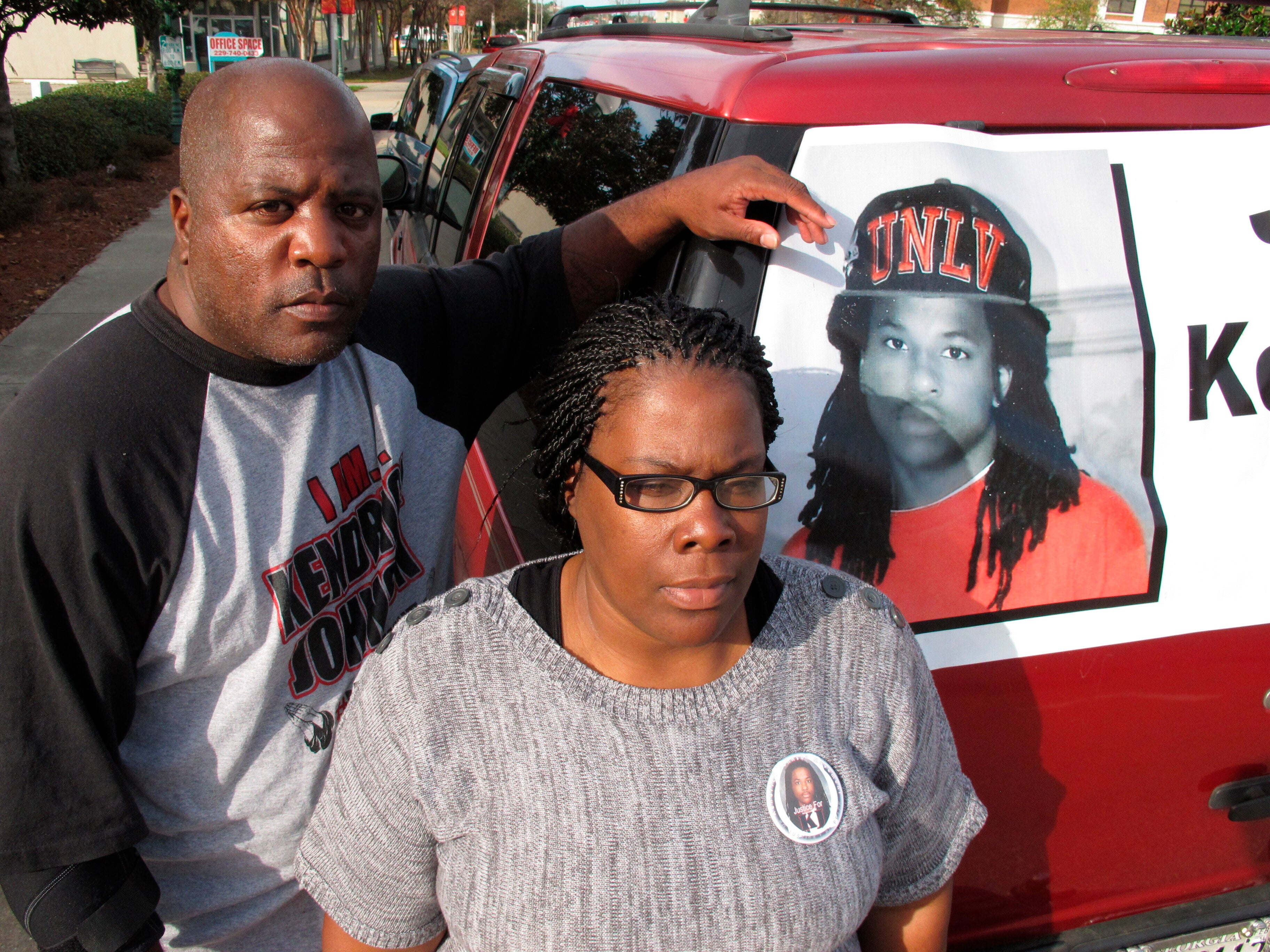Georgia sheriff reopens case of teenager's gym mat death
A Georgia sheriff says he's reopened an investigation into the 2013 death of a teenager whose body was found inside a rolled-up gym mat at his high school

A Georgia sheriff has reopened an investigation into the 2013 death of a teenager whose body was found inside a rolled-up gym mat at his high school, saying he's reviewing 17 boxes of evidence collected by federal agents that his office recently obtained from the U.S. Justice Department.
Fellow students found the body of 17-year-old Kendrick Johnson in the gymnasium at Lowndes High School in Valdosta on Jan. 11, 2013. Lowndes County sheriff’s investigators concluded soon after that Johnson died in a freak accident, stuck upside down and unable to breathe while trying to retrieve a shoe that fell inside the upright mat.
Johnson's parents have insisted from the beginning that he was slain, and have long accused law enforcement and school officials of covering up the crime.
Lowndes County Sheriff Ashley Paulk, who wasn't in office during the original investigation of Johnson's death, said in a phone interview Wednesday that he agreed to start a new investigation after the Johnson family helped his office obtain the Justice Department's files on its 2 1/2-year investigation into Johnson's death.
“People ask me was it an accident or a murder, and I say I can’t give you an opinion until I see every bit of evidence that we have," Paulk said. He called the Justice Department's case file "a good piece of the puzzle that was missing.”
Federal authorities ultimately provided no answers in 2016 when they closed their investigation into whether Johnson's civil rights were violated. The Justice Department released a statement saying investigators “found insufficient evidence to support federal criminal charges.”
Marcus Coleman, an Atlanta civil rights activist , has worked with Johnson's parents, Kenneth and Jaquelyn Johnson, for years to get the case reopened. He said the family is “cautiously optimistic” that Paulk will give the case a fair and thorough review.
“They’ve been through eight years of hell. They’ve had a lot of letdowns," Coleman said. “Now that it’s back in the hands of the sheriff's department, we’re literally back to square one.”
Johnson's parents have long accused two fellow students of attacking their son at school and dumping his body in the rolled up mat. They filed civil lawsuits alleging a conspiracy to cover up the crime by law enforcement officers, state medical examiners and school officials.
After the Johnson family dropped one of their lawsuits that named 39 defendants in 2017, Lowndes County Superior Court Judge Richard Porter wrote that Johnson's parents “had no evidence to support their claims” of foul play.
One of the students accused by Johnson's parents was away from school traveling to a sports tournament at the time Johnson died, according to the case file from the sheriff's initial investigation. Authorities said school security camera footage confirmed the second accused student was in another part of the building.
No one has ever been charged with any crimes in Johnson's death.
Paulk said he's personally leading the new investigation, which will compare the federal agents' findings with evidence the sheriff's office gathered in 2013. New interviews are being conducted with some witnesses, the sheriff said. He expects to spend at least six months on the case.
“There’s no reason to rush to judgement,” Paulk said. "It’s been eight years.”
Bookmark popover
Removed from bookmarks